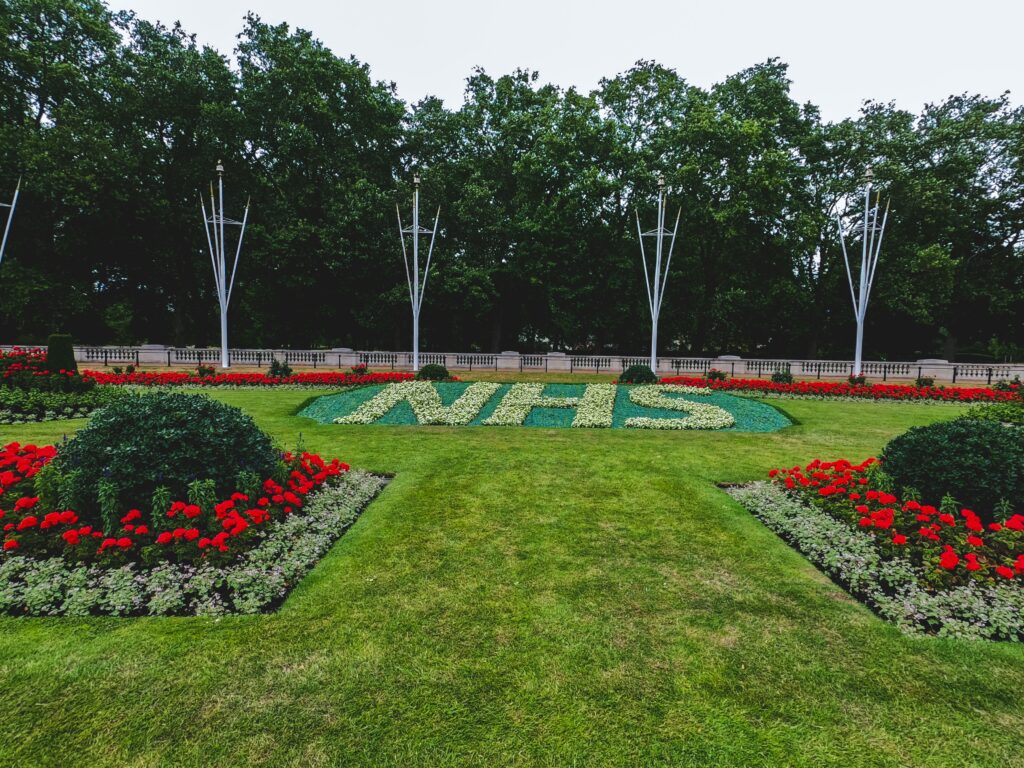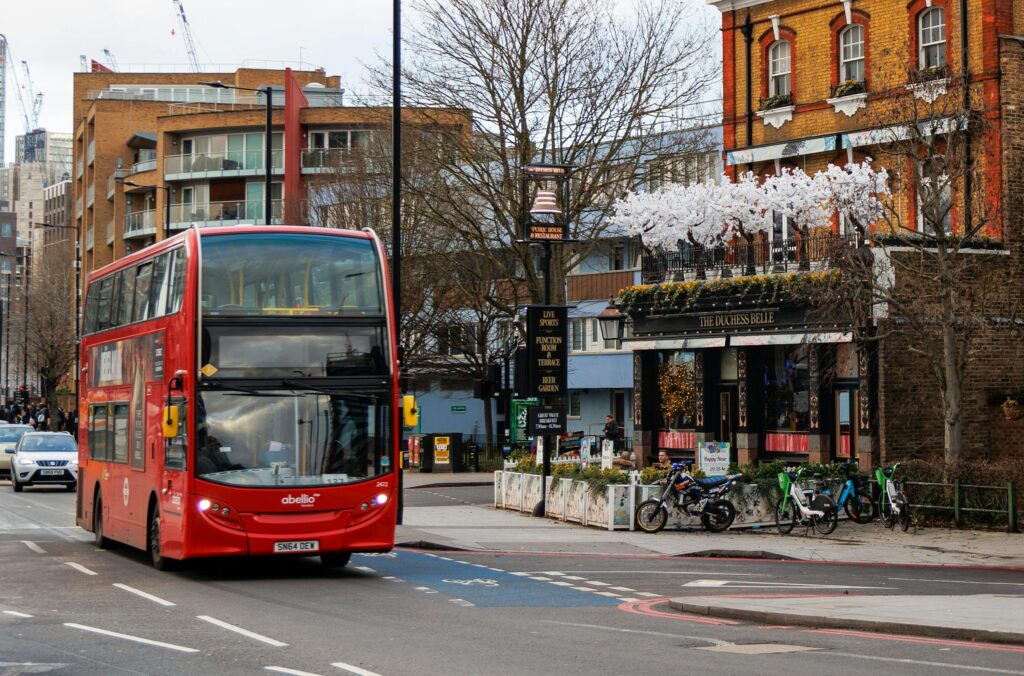You’ve landed in the UK, great stuff! In this article, I want to share 5 important things you should do shortly after arriving.
Some of these things are a must-do, and others will make your life here convenient if you get them done sooner rather than later.
1. Get a SIM Card
It is a basic and obvious point, but very important.
Data and connectivity are essential for pretty much everything in the current world.
You don’t have to wait to go to one of the network’s stores to get a sim.
You can buy a SIM card for most networks at the airport.
I’ve bought SIM cards for myself from WH Smith at the airport.
You’ll have to buy a top-up voucher along with the SIM card.
For a start, a £10 voucher will give you more than enough data.
Most networks give unlimited local calling minutes and messages with their data bundles.
Some networks even give free international calling minutes. But I find it hard to see the need for this given how easy it is to call abroad using social media apps like WhatsApp, Instagram, etc.
The good thing is there are no additional steps in setting up the SIM.
You simply have to put it in your phone, load the voucher, and you are connected!
No unnecessary activation procedures!
A data bundle is usually valid for a month.
Once you’ve settled in, you can decide whether you want to continue on monthly pay-as-you-go data bundles or switch to a contract.
You can even decide to switch networks to one that has good coverage in the area where you live.
You can retain your initial number even after switching networks.
The network store advisor will be able to help you do this. Or, you can even do it online, it’s a very easy process.
I still just get the £10 monthly pay-as-you-go bundle as it gives me unlimited calling minutes and messages, and the data is more than enough for me. I have set it to auto top-up – which gives me additional data as a promotional offer.
2. Enrol at your University
You will have received instructions from your university on how to enrol once you arrive in the UK.
There might be some procedures to complete online.
But the main part is your documents check before you can be registered for the course. They used to call it the right to study check at Coventry University.
The Admissions Team checks your visa and other required documents stated in the how-to-enrol email.
Make sure you take all your original documents with you.
Once you’ve enrolled, you’ll be issued your student ID card, and get access to the university’s online learning platform.
On the learning platform, you’ll find your course content and material for revision, information about the university’s other services, for example, the library, IT services, student support, finance, etc., information about the students’ union, and information on pretty much everything your university has to offer.
It’s effectively the university’s intranet.
Try and arrive in the UK a few days before your course starts, so you can enrol before the first day of term. This way, when term starts, you’ll be all set, and you can fully concentrate on your course.
3. Register with a GP (General Practitioner)

In my ‘How to apply for the UK student visa’ post, I talked about the IHS (Immigration Health Surcharge) fees you have to pay before submitting your visa application form.
The IHS entitles you to healthcare provided by the NHS (National Health Service).
And you can access the services of the NHS by registering with a local GP.
The GP surgery will register you with the NHS. This will give you access to medical consultations at the surgery, essential vaccinations (if eligible), as well as emergency services and major operations at hospitals.
You can easily search for GPs near you on the NHS website.
Your university will also have a list of GPs around the university area.
It’s very important that you get registered to be able to access medical care provided by the NHS.
Private medical care in the UK is extremely expensive.
4. Open a UK Bank Account

This is essential.
It is not financially feasible to use a foreign bank card here for transactions. You will be charged transaction fees, and you might not even get a fair Forex conversion rate from your home bank.
It is simple to open a bank account.
(a) Conventional Banks
All you need to do is walk into a bank branch and get an appointment. Then you need to attend your appointment with your original ID documents and a student status confirmation letter.
Some banks might even open an account for you there and then. So, it might be worth carrying your documents when visiting a branch.
A lot of the big banks offer a student account.
Some of the student accounts come with benefits, such as cashback and rewards.
It might be useful to do some research on banks that offer student accounts with good benefits.
But, aside from that, the student accounts are not any different from normal current accounts.
It is usually free to maintain the account. There are also no charges for local transactions including ATM withdrawals and card payments.
Card payments are an option literally everywhere in the UK.
And it is so convenient, especially contactless payments. Just tap and payment is done!
With Google Pay, Samsung Pay, or Apply Pay, it’s even easier.
Because, then you only need your phone for payments, you don’t have to carry your card around.
This convenience emphasises the need for a UK bank account, and the faster you get one, the better.
(b) Digital Banks
Moreover, you could even look into digital banks, for example, Monzo and Revolut.
These offer the same services as traditional banks, but fully online – through their website or mobile app. They do not have physical branches.
These banks have their benefits, for instance, ease of opening an account (as it is fully online), cashback offers, instant payment processing, and lower fees on international transactions.
They even have credit cards with decent credit limits.
5. Get a Travel Pass

(a) Bus Pass
If you need to get a bus to campus, then I’d recommend getting a bus pass. It works out cheaper than buying single tickets each day.
There are bus passes for a week, month, term, and year.
Make sure to get the student bus pass, as it is cheaper than the standard adult bus pass.
Different bus companies operate in different cities.
Therefore, you’ll have to check for bus passes on your city’s bus operator’s website.
(b) Train Season Tickets and Railcard
For those of you commuting from other towns/cities, and if you need to use the train, then a season ticket can be a good option.
Additionally, for general train travel, for instance, going on trips to explore the UK, or even travelling to other cities to see family/friends, the 16-25 railcard gives a 1/3 off all train fares.
A 1-year railcard is £30.
To put it into context, just the savings from 2 round trips from Birmingham to London would be enough to recover the railcard’s price.
It is a good deal if you are going to travel regularly by train.
To easily book train tickets, check out Trainline.
(c) Students in London
For students studying at universities in London, you can get an 18+ Student Oyster Photocard for £20.
The photocard gives you 30% off on travelcards and bus and tram passes.
A travelcard (in the zones it’s valid for) gives you unlimited travel at any time on bus, tube, tram, DLR, London Overground, Elizabeth Line and National Rail services in London.
You can use it on all buses, and if valid in zones 3, 4, 5 or 6, on all trams.
You can buy a 7-day, monthly, and annual travelcard, or one with start and end dates you choose (any length between 1½ and 10½ months).
Pay-as-you-go credit can also be added to the photocard.
By adding your 16-25 railcard to your photocard, you save a 1/3 on pay-as-you-go off-peak fares (travel after 9:30 on weekdays, and anytime on weekends and bank holidays) and daily caps.
(d) Students in the West Midlands – Personal Experience Bonus Tip
The whole time I’ve been in the UK, I have lived in the West Midlands.
I used to commute to Coventry University from Birmingham.
For my travel, I used to get the Student nNetwork Zones 1-5 Term Pass.
Check the zones you’ll be travelling through before buying a pass.
If, for example, you will only be travelling within areas near Birmingham city centre, then a Zones 1-2 pass should be sufficient.
You can check this information online or at a staffed railway station.
The pass was a very good deal.
It gave unlimited travel at any time on train, bus, and tram across the West Midlands, for over 4 months. This included Birmingham, Coventry, Wolverhampton, Dudley, Walsall, and Sutton Coldfield.
This pass is a no-brainer for any students commuting to university using trains and buses within the West Midlands.
The Zones 1-5 term pass costs £325. It was £270 when I started uni 🙁.
But, still a good deal in my opinion.
Conclusion
I have shared a few tips to make your transition to student life in the UK smooth and convenient.
All the points shared are essential. You should do these things, ideally within the first few days of arriving in the UK.
Maybe getting a travel pass wouldn’t be classed as a must-do. But then again, who wouldn’t want to save money right? Besides saving money, having one makes travelling very convenient.
These things are easy to get done. Quickly get them out of the way at the start, and enjoy the rest of your time in the UK!
Stay tuned for more posts about student life in the UK.
Have you decided which bank you’ll open an account with and which travel pass you’ll get?



